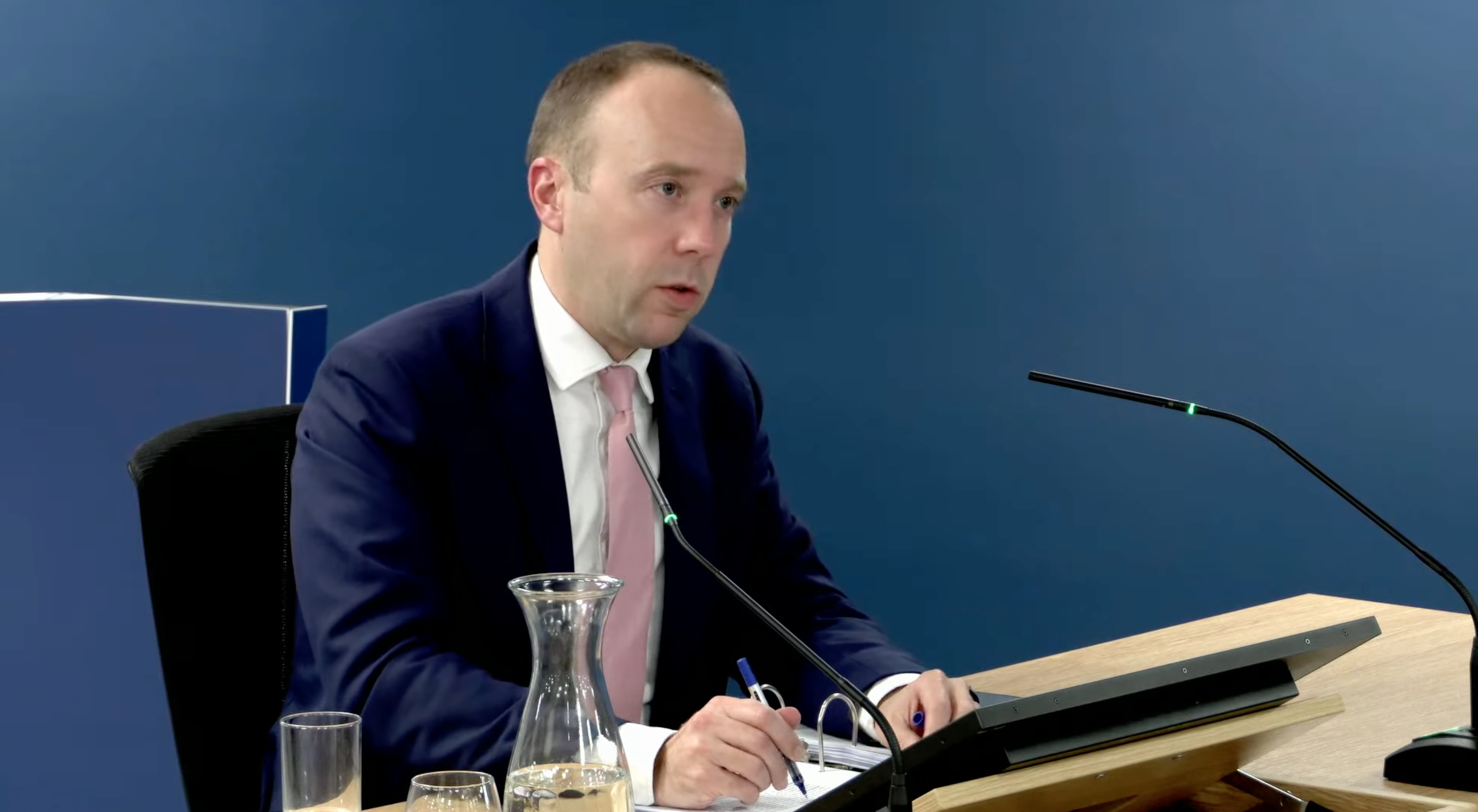Matt Hancock today admitted he did not read the minutes of SAGE at the start of the pandemic and instead relied on a summary from Sir Chris Whitty.
The Scientific Advisory Group on Emergencies, or SAGE, is an expert group deployed in an emergency to integrate independent scientific research and analysis from across government, academia and industry.
During the pandemic, SAGE was co-chaired by Sir Chris Whitty, the chief medical officer, and Sir Patrick Vallance, then the government’s chief scientific adviser (GCSA).
Hancock told the Covid inquiry: “I asked for [SAGE] at some point in February, to be regularly put in my box. … With hindsight I think I should have gone and listened to directly to the debate in SAGE.”


Pressed by Hugo Keith KC, the chief counsel to the inquiry, on whether the minutes of SAGE were being put before him as the secretary of state responsible for public health, Hancock added:
Not in the first instance, until I asked for them, but also the premise of your question is not correct, they were not the sole and only body, they had subcommittees like SPI-M, there was NERVTAG which reported formally into the department, and of course there was a much wider body of publicly debated scientific advice, so SAGE was an important body but I think it would be wrong to fetishise its existence and role
Former chief adviser to the prime minister Dominic Cummings posted on X (formerly Twitter) in response: “Hancock admits he didn’t read SAGE minutes in Feb – explains a lot”.
In a further exchange, Matt Hancock said it “should have been” a vital moment for the government when SAGE concluded by February 13, 2020, that China had failed to contain Covid.
He said he did not recall when he was told about SAGE’s view.
Lead counsel Hugo Keith KC said: “That was a seminal moment. In the context of this debate, you were told there’s a 50/50 scenario, it’s contained or it’s not. And if it’s not, then subject to sustained community transmission, it’s game over.
“Being told formally, the government machine was informed formally on the 13th of February that China had failed. Would you acknowledge that that was a vital moment?”
Hancock replied: “It certainly should have been.”
Hancock also told the Covid inquiry that locking down three weeks earlier would have saved 90 per cent of lives in the first Covid wave.
The former health secretary said that by the end of February 2020 he had realised that serious action was needed to suppress the virus and, with hindsight, that the country should have locked down on March 2, not March 26 when lockdown measures legally came into force.
“This was the moment that we should have acted. We would have been six doublings ahead and fewer than one tenth would have died in the first wave”, he said.
He told the inquiry that the government’s original pandemic plan never intended to stop infections, only to manage the consequences.
In other revelations today, Hancock said there was a “culture of fear” linked to former chief adviser to the prime minister Dominic Cummings that may have caused former chancellor Sajid Javid to resign.
Hancock claimed Cummings made a “power grab” in early 2020, seizing control of No 10.
Hancock also told the Inquiry he was “blocked” by Whitehall in the early days of the pandemic.
Politics.co.uk is the UK’s leading digital-only political website, providing comprehensive coverage of UK politics. Subscribe to our daily newsletter here.












